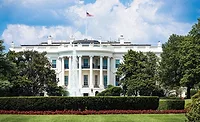American disenchantment and disinformation ushering political violence and fracturing our democracy

Image via Freepik
A Washington Post-ABC poll published in November 2022 found 88% of respondents believe “that political divisions have gotten to the point that there’s an increased risk of politically motivated violence in this country.” Regarding who is to blame for this predicament, 25% believed the Democratic Party was responsible, 31% pointed to the Republican Party, while 32% criticized both parties. A November 2022 NBC News poll revealed that “72 percent of voters say the country is headed in the wrong direction just two days ahead of the midterm elections.”
An October 2022 joint Federal Bureau of Investigation (FBI) and Department of Homeland Security (DHS) “Strategic Intelligence Assessment and Data on Domestic Terrorism” report pronounced that among the principal domestic terrorist threats are “lone offenders and small groups of individuals who commit acts of violence motivated by a range of ideological beliefs and/or personal grievances.”
They identified anti-government or anti-authority violent extremism, including belligerently-inclined anarchists, militia members, and sovereign citizens, as comprising a top-five domestic extremism threat. The assessment also noted anti-government or anti-authority violent extremism constituted 37% (FY 2020) and 38% (FY2021) of the FBI’s domestic terrorism investigations (DTIs). Anti-riot laws/civil unrest incidents constituted an ascending share of DTIs from 17% in FY 2020 to 31% in FY 2021.
The growing, corrosive, and violent rhetoric (and worse, kinetic acts) enveloping the political system, the prominence of election denialism, coupled with the demonization of political opponents as well as election officials and workers, could be characterized as a de-facto type of anti-government or anti-authority radicalism worthy of reproach and meriting attention.
A momentous example of anti-government activity was the January 6th siege, comprising an on-the-ground assault to impede the peaceful transfer of presidential power. Since Insurrection Day — as referred to by some — there have been over 880 arrests of individuals from almost every state, “including over 270 individuals charged with assaulting or impeding law enforcement.” Analogously, the U.S. Capitol Police reported threats against members of Congress increased from “3,939 in 2017 to 9,625 in 2021,” underscoring the growing appeal of political violence domestically.
There were over 100 threats of violence against 40 election officials and workers in eight battleground states in the aftermath of the 2020 elections. Likewise, the secretaries of state of Arizona, Colorado, and Michigan received death threats because they certified the votes in those states for President-elect Joe Biden. In November 2020, the words “Vote [sic] don’t work. Next time bullets” were painted on a parking lot outside the Jackson County clerk’s office in Oregon. While Oregon went to Joe Biden during that election cycle, Jackson County was won by Donald Trump. Al Schmidt, a Republican Philadelphia (Pennsylvania) city commissioner, received threats against him and his family arising from unsubstantiated claims that hundreds of dead people voted in the November 2020 elections.
An April 2021 nationwide survey of local election officials found one-third feared being harassed in their roles, while one-sixth actually experienced such threats. In January 2022, Texas-based Chad Stark was charged federally on one count of communicating interstate threats, arising from his January 2021 Craigslist post entitled, “Georgia Patriots it’s time to kill [Official A] the Chinese agent - $10,000.” The post continued, in pertinent part, “Then, we work our way down to [Official B] the local and federal corrupt judges. It’s our duty as American Patriots to put an end to the lives of these traitors and take back our country by force.” This was the first criminal case brought by the U.S. Justice Department’s Election Threats Task Force.
Further strains on the body politic were evidenced in a July 2022 Gallup poll which found only 28% of Americans had “a great deal” or “quite a lot” of confidence in 16 major institutions — among them, U.S. Congress, the presidency, police, and the U.S. Supreme Court. This figure was five percent less than the previous year. Support for the U.S. Congress was a dismal 7% (down from 12%), the presidency marked 23% (from 38%), and the U.S. Supreme Court dropped to 25% (from 36%). Also, faith in the Fourth Estate, embodied by newspapers 16% (from 21%) and television news 11% (from 16%), was anemic. Increasingly, segments of the media have been labeled by politicians and their supporters as enemies of the state.
The anti-government and anti-democratic forces cited above continue today with renewed fervor, manipulated by disinformation, fueled by rancor and messianic appeal, and encouraging violence against political opponents. These themes will be elaborated further while prognosticating that this confluence of malaise, disenchantment, and untruths could precipitate authoritarianism and its concomitant violence in this country.
What Disinformation and Disillusionment Have Precipitated
Particularly relevant now are the threats of violence and violence against political candidates, elected officials, election workers, and voters. This situation is harmful to the democratic process as it intimidates such public servants and plebeians. The objectives of these risks and intimidating activities are to dissuade people who are neutral or aligned with one political party from participating in any fashion in the electoral process. Also, this apprehension will result in fewer individuals — in some cases, strongly credentialed persons — seeking political office.
If violence is deemed acceptable and normalized, notably when advocated without reticence by politicians, then intrastate conflict could become pervasive, with negative ramifications for persons, property, and the country. An overarching sentiment encouraging political violence has taken hold online and offline in proverbial echo chambers. These developments lend themselves to declining faith in other citizens, and another’s electoral choices. More broadly, it chips away at one’s confidence in a cohesive and functional nation-state. It injects animosity against fellow voters, which segments them, and ultimately undermines the electoral process and democracy. This was evident in the fall 2020 election cycle and culminated in extra-judicial efforts to change the outcome of the presidential election, including the January 6th uprising. Election denialism continues with great intensity at this juncture, with candidates nationwide questioning the outcome of the 2020 presidential elections and claiming they will only recognize election results if they are declared the victor.
In some political circles, there has been a normalization of propagating factually inaccurate perspectives in order to purposely mislead the public. Persons who push such canards and massaged data do so because they are incapable of gaining adherents for their unadulterated positions. Also, these deceivers assume the persons they want to manipulate are limited, easily swayed, and thirsty to believe in anything that will create additional meaning in their lives. Other new believers in fabricated realities do so to advance their own interests, whether politically and/or economically.
These efforts contribute to the masses’ inability to distinguish reality from desired perceptions. Such disinformation is conducive to creating enmity against anyone with a disparate outlook. Concurrently, the dissemination of these contrived realities has injected further skepticism in the populace about governmental institutions (e.g., legislative, executive, and judicial branches) and governmental frameworks (e.g., legitimacy of voting and outcomes of elections). This doubt and negativity about contemporary society will ultimately lead to further fissures in this country, already embodied by a crumbling of faith and support for civil society.
In time, such pessimism could metastasize and raise the prospects of instability, further political violence, and weakening societal norms. These activities could result in the creation of an authoritarian-induced political system. In doing so, new leadership could implement an agenda benefiting a newly-empowered political class and their obedient foot soldiers. In such a scenario, an authoritarian leader and his/her acolytes could ultimately gain control of the instrumentalities of the state and wage warfare on their perceived enemies. It is foreseeable that the sycophants among them would willingly carry out whatever duties they are instructed to follow with particular enthusiasm.
Unfortunately, this is the path American society appears to be heading, but our recognition of this threat and pursuit of all legally permissible endeavors can undermine such a trajectory. Disrupting such a bleak future will require a dedication to facts, rejection of disinformation, acceptance of bona fide election results that have been monitored and adjudicated as legally legitimate, and otherwise embracing the tenets of democracy. We should not support election denialism, advocate support for the threat or use of political violence, or otherwise endanger our political system that has largely thrived for over two centuries.
Looking for a reprint of this article?
From high-res PDFs to custom plaques, order your copy today!





